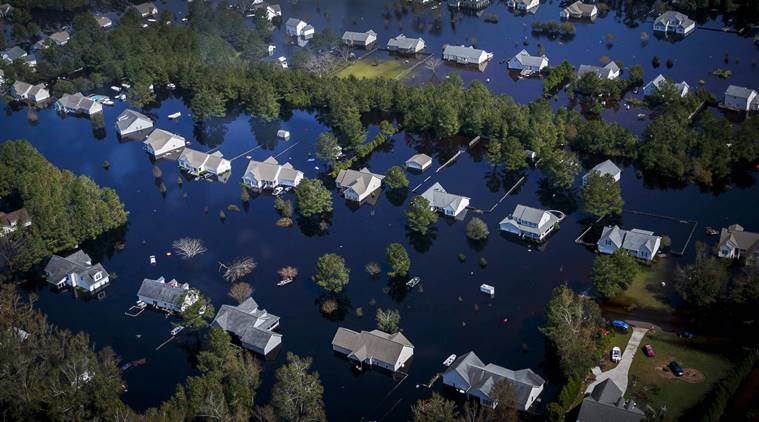North Carolina city relies on FirstNet voice, data communications during Hurricane Florence
What is in this article?
North Carolina city relies on FirstNet voice, data communications during Hurricane Florence
FirstNet provided the city of Whiteville, N.C., with critical voice and data communications throughout Hurricane Florence and subsequent flooding in the area, passing a “big test” regarding the resiliency and flexibility associated with the nationwide public-safety broadband network (NPSBN), according to a Whiteville official.FirstNet provided the city of Whiteville, N.C., with critical voice and data communications throughout Hurricane Florence and subsequent flooding in the area, passing a “big test” regarding the resiliency and flexibility associated with the nationwide public-safety broadband network (NPSBN), according to a Whiteville official.
Hal Lowder, director of the emergency operations center in Whiteville, N.C., said that FirstNet played a vital role in the city’s recovery efforts, particularly after the failure of its LMR system—a county-owned 400 MHz trunked system that uses a proprietary technology. Whiteville public-safety, city officials and some mutual-aid personnel were able to maintain communications by using AT&T’s enhanced-push-to-talk service (EPTT) over the FirstNet system without interruption.
“There were times there when EPTT was our primary means of communications,” Lowder said during an interview with IWCE’s Urgent Communications.
Whiteville began using FirstNet in June, after Lowder and another city official researched the NPSBN offering upon first learning about the then-proposed system at a conference a couple of years ago. Whiteville police officers were disappointed with the data service from the city’s previous cellular provider—“they just could not keep up with the data on our mobile data terminals”—and Lowder said he viewed FirstNet as a viable alternative when it became available.
“We demoed with FirstNet, and [Whiteville police officers] were ecstatic,” he said. “So, we rolled it out in June citywide—fire, police, emergency management, administration.”
Lowder said that he “loved the concept” of FirstNet but acknowledged that he questioned whether the NPSBN would provide reliable broadband service in an environment as difficult as Hurricane Florence and the unprecedented flooding followed the storm. But those fears were allayed as Whiteville’s connectivity was maintained throughout the episode and AT&T quickly deployed a requested satellite-connected cell on light truck (SatCoLT) to enhance coverage and capacity in the troubled area, he said.
“FirstNet delivered,” Lowder said.
When asked whether he considers FirstNet to be a mission-critical network, Lowder said, “It was mission-critical for us.”
Lowder said that all Whiteville police officers told him that the EPTT voice quality over the FirstNet system was “as good, if not better” than they had experienced on LMR network. Lowder said that the voice quality was maintained throughout the storm and its aftermath.
AT&T’s EPTT uses a carrier-integrated push-to-talk-over-cellular (PoC) technology developed by Kodiak, which was purchased by Motorola Solutions last year.
“We’re pleased Motorola Solution’s Kodiak EPTT solution performed as planned during Hurricane Florence,” according to a Motorola Solutions statement provided to IWCE’s Urgent Communications. “Motorola Solutions land mobile radio (LMR) P25 customers, including users of standalone county systems or the North Carolina VIPER and South Carolina Palmetto 800 statewide systems, experienced reliable radio communications during and after the hurricane.
“Future FirstNet and EPTT users will have the ability to bridge communications between LMR and LTE networks to share data information—such as pictures and video—during disaster recovery efforts.”
In addition to EPTT, AT&T officials have said that FirstNet subscribers will be able to use a standards-based mission-critical push-to-talk (MCPTT) service provided by multiple vendors beginning later this year.
Despite the effectiveness of EPTT over the FirstNet system, Lowder emphasized that he does not believe that FirstNet voice offerings will replace LMR. In fact, Whiteville officials hope to move the city’s public-safety communications from the Columbus County UHF system to the statewide VIPER network, which the city uses only on a limited basis today, he said.










